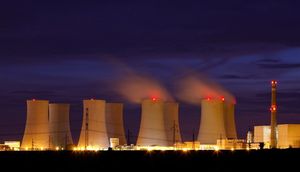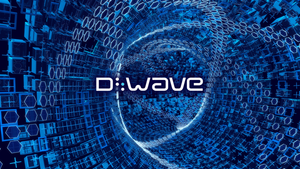
In a monumental week for artificial intelligence, Google (NASDAQ: GOOGL) has cemented its position at the forefront of the global AI race with the general availability of its seventh-generation Tensor Processing Unit (TPU), codenamed Ironwood, following its unveiling from November 6-9, 2025. This hardware breakthrough is coupled with an unprecedented commitment of $85 billion in AI infrastructure investments for 2025, signaling a strategic pivot to dominate the burgeoning AI landscape. These dual announcements underscore Google's aggressive strategy to provide the foundational compute power and global network required for the next wave of AI innovation, from large language models to complex scientific simulations.
The immediate significance of these developments is profound, promising to accelerate AI research, deployment, and accessibility on a scale previously unimaginable. Ironwood TPUs offer a leap in performance and efficiency, while the massive infrastructure expansion aims to democratize access to this cutting-edge technology, potentially lowering barriers for developers and enterprises worldwide. This move is not merely an incremental upgrade but a foundational shift designed to empower a new era of AI-driven solutions and solidify Google's long-term competitive advantage in the rapidly evolving artificial intelligence domain.
Ironwood: Google's New Silicon Crown Jewel and a Glimpse into the AI Hypercomputer
The star of Google's latest hardware unveiling is undoubtedly the TPU v7, known as Ironwood. Engineered for the most demanding AI workloads, Ironwood delivers a staggering 10x peak performance improvement over its predecessor, TPU v5p, and boasts more than 4x better performance per chip compared to TPU v6e (Trillium) for both training and inference. This generational leap is critical for handling the ever-increasing complexity and scale of modern AI models, particularly large language models (LLMs) and multi-modal AI systems that require immense computational resources. Ironwood achieves this through advancements in its core architecture, memory bandwidth, and inter-chip communication capabilities.
Technically, Ironwood TPUs are purpose-built ASICs designed to overcome traditional bottlenecks in AI processing. A single Ironwood "pod" can seamlessly connect up to 9,216 chips, forming a massive, unified supercomputing cluster capable of tackling petascale AI workloads and mitigating data transfer limitations that often plague distributed AI training. This architecture is a core component of Google's "AI Hypercomputer," an integrated system launched in December 2023 that combines performance-optimized hardware, open software, leading machine learning frameworks, and flexible consumption models. The Hypercomputer, now supercharged by Ironwood, aims to enhance efficiency across the entire AI lifecycle, from training and tuning to serving.
Beyond TPUs, Google has also diversified its custom silicon portfolio with the Google Axion Processors, its first custom Arm-based CPUs for data centers, announced in April 2024. While Axion targets general-purpose workloads, offering up to twice the price-performance of comparable x86-based instances, its integration alongside TPUs within Google Cloud's infrastructure creates a powerful and versatile computing environment. This combination allows Google to optimize resource allocation, ensuring that both AI-specific and general compute tasks are handled with maximum efficiency and cost-effectiveness, further differentiating its cloud offerings. The initial reactions from the AI research community and industry experts have been overwhelmingly positive, highlighting Ironwood's potential to unlock new frontiers in AI model development and deployment, particularly in areas requiring extreme scale and speed.
Reshaping the Competitive Landscape: Who Benefits and Who Faces Disruption?
Google's aggressive move with Ironwood TPUs and its substantial infrastructure investments will undoubtedly reshape the competitive dynamics within the AI industry. Google Cloud customers stand to be immediate beneficiaries, gaining access to unparalleled AI compute power that can accelerate their own AI initiatives, whether they are startups developing novel AI applications or established enterprises integrating AI into their core operations. The AI Hypercomputer, powered by Ironwood, provides a comprehensive ecosystem that simplifies the complexities of large-scale AI development, potentially attracting a wider array of developers and researchers to the Google Cloud platform.
The competitive implications for other major AI labs and tech companies are significant. Rivals like Amazon (NASDAQ: AMZN) with AWS and Microsoft (NASDAQ: MSFT) with Azure, who are also heavily investing in custom AI silicon (e.g., AWS Inferentia/Trainium, Azure Maia/Cobalt), will face intensified pressure to match or exceed Google's performance and cost efficiencies. Google's commitment of an "staggering $85 billion investment in AI for 2025" primarily focused on expanding data centers and AI infrastructure, including $24 billion for new hyperscale data hubs across North America, Europe, and Asia, and specific commitments like €5 billion for Belgium and $15 billion for an AI hub in India, demonstrates a clear intent to outpace competitors in raw compute capacity and global reach.
This strategic push could potentially disrupt existing products or services that rely on less optimized or more expensive compute solutions. Startups and smaller AI companies that might struggle to afford or access high-end compute could find Google Cloud's offerings, particularly with Ironwood's performance-cost ratio, an attractive proposition. Google's market positioning is strengthened as a full-stack AI provider, offering not just leading AI models and software but also the cutting-edge hardware and global infrastructure to run them. This integrated approach creates a formidable strategic advantage, making it more challenging for competitors to offer a similarly cohesive and optimized AI development and deployment environment.
Wider Significance: A New Era of AI and Global Implications
Google's latest announcements fit squarely into the broader trend of hyperscalers vertically integrating their AI stack, from custom silicon to full-fledged AI services. This move signifies a maturation of the AI industry, where the underlying hardware and infrastructure are recognized as critical differentiators, just as important as the algorithms and models themselves. The sheer scale of Google's investment, particularly the $85 billion for 2025 and the specific regional expansions, underscores the global nature of the AI race and the geopolitical importance of owning and operating advanced AI infrastructure.
The impacts of Ironwood and the expanded infrastructure are multi-faceted. On one hand, they promise to accelerate scientific discovery, enable more sophisticated AI applications across industries, and potentially drive economic growth. The ability to train larger, more complex models faster and more efficiently could lead to breakthroughs in areas like drug discovery, climate modeling, and personalized medicine. On the other hand, such massive investments and the concentration of advanced AI capabilities raise potential concerns. The energy consumption of these hyperscale data centers, even with efficiency improvements, will be substantial, prompting questions about sustainability and environmental impact. There are also ethical considerations around the power and influence wielded by companies that control such advanced AI infrastructure.
Comparing this to previous AI milestones, Google's current push feels reminiscent of the early days of cloud computing, where companies rapidly built out global data center networks to offer scalable compute and storage. However, this time, the focus is acutely on AI, and the stakes are arguably higher given AI's transformative potential. It also parallels the "GPU gold rush" of the past decade, but with a significant difference: Google is not just buying chips; it's designing its own, tailoring them precisely for its specific AI workloads, and building the entire ecosystem around them. This integrated approach aims to avoid supply chain dependencies and maximize performance, setting a new benchmark for AI infrastructure development.
The Road Ahead: Anticipating Future Developments and Addressing Challenges
In the near term, experts predict that the general availability of Ironwood TPUs will lead to a rapid acceleration in the development and deployment of larger, more capable AI models within Google and among its cloud customers. We can expect to see new applications emerging that leverage Ironwood's ability to handle extremely complex AI tasks, particularly in areas requiring real-time inference at scale, such as advanced conversational AI, autonomous systems, and highly personalized digital experiences. The investments in global data hubs, including the gigawatt-scale data center campus in India, suggest a future where AI services are not only more powerful but also geographically distributed, reducing latency and increasing accessibility for users worldwide.
Long-term developments will likely involve further iterations of Google's custom silicon, pushing the boundaries of AI performance and energy efficiency. The "AI Hypercomputer" concept will continue to evolve, integrating even more advanced hardware and software optimizations. Potential applications on the horizon include highly sophisticated multi-modal AI agents capable of reasoning across text, images, video, and even sensory data, leading to more human-like AI interactions and capabilities. We might also see breakthroughs in areas like federated learning and edge AI, leveraging Google's distributed infrastructure to bring AI processing closer to the data source.
However, significant challenges remain. Scaling these massive AI infrastructures sustainably, both in terms of energy consumption and environmental impact, will be paramount. The demand for specialized AI talent to design, manage, and utilize these complex systems will also continue to grow. Furthermore, ethical considerations surrounding AI bias, fairness, and accountability will become even more pressing as these powerful technologies become more pervasive. Experts predict a continued arms race in AI hardware and infrastructure, with companies vying for dominance. The next few years will likely see a focus on not just raw power, but also on efficiency, security, and the development of robust, responsible AI governance frameworks to guide this unprecedented technological expansion.
A Defining Moment in AI History
Google's latest AI chip announcements and infrastructure investments represent a defining moment in the history of artificial intelligence. The general availability of Ironwood TPUs, coupled with an astonishing $85 billion capital expenditure for 2025, underscores Google's unwavering commitment to leading the AI revolution. The key takeaways are clear: Google is doubling down on custom silicon, building out a truly global and hyperscale AI infrastructure, and aiming to provide the foundational compute power necessary for the next generation of AI breakthroughs.
This development's significance in AI history cannot be overstated. It marks a pivotal moment where the scale of investment and the sophistication of custom hardware are reaching unprecedented levels, signaling a new era of AI capability. Google's integrated approach, from chip design to cloud services, positions it as a formidable force, potentially accelerating the pace of AI innovation across the board. The strategic importance of these moves extends beyond technology, touching upon economic growth, global competitiveness, and the future trajectory of human-computer interaction.
In the coming weeks and months, the industry will be watching closely for several key indicators. We'll be looking for early benchmarks and real-world performance data from Ironwood users, new announcements regarding further infrastructure expansions, and the emergence of novel AI applications that leverage this newfound compute power. The competitive responses from other tech giants will also be crucial to observe, as the AI arms race continues to intensify. Google's bold bet on Ironwood and its massive infrastructure expansion has set a new standard, and the ripple effects will be felt throughout the AI ecosystem for years to come.
This content is intended for informational purposes only and represents analysis of current AI developments.
TokenRing AI delivers enterprise-grade solutions for multi-agent AI workflow orchestration, AI-powered development tools, and seamless remote collaboration platforms.
For more information, visit https://www.tokenring.ai/.






